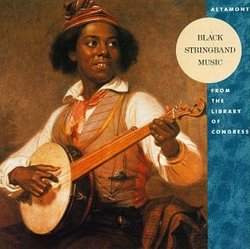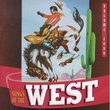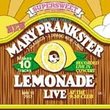| All Artists: Nathan Frazier, Frank Patterson, Murph Gribble, John Lusk, Albert York Title: Altamont -- Black Stringband Music from the Library of Congress Members Wishing: 1 Total Copies: 0 Label: Rounder Select Release Date: 2/14/1992 Genres: Country, Blues, Folk, International Music, Pop, Classical Styles: Bluegrass, Classic Country, Traditional Blues, Traditional Folk, Instruments, Strings Number of Discs: 1 SwapaCD Credits: 1 UPCs: 011661023826, 011661023840 |
Search - Nathan Frazier, Frank Patterson, Murph Gribble :: Altamont -- Black Stringband Music from the Library of Congress
 | Nathan Frazier, Frank Patterson, Murph Gribble Altamont -- Black Stringband Music from the Library of Congress Genres: Country, Blues, Folk, International Music, Pop, Classical
|
Larger Image |
CD DetailsSimilar CDs
|
CD ReviewsThe best music ever Tony Thomas | SUNNY ISLES BEACH, FL USA | 08/21/2004 (5 out of 5 stars) "A while ago, I had the chance to spend the day with the Great Stu Jameson, an old time music player and historian, an expert on the banjo, and on everything else, who recorded the second half of this CD back in the 1940s. He explained that he and folklorist and Square Dance expert Margret Mayo had journeyed to areas in the South where they both had relatives looking for banjo players and fiddlers to record to help document the styles and techniques of playing that the traditional players used. STU pointed out that even among people who did field recordings of traditional music few understood why they wanted to document or preserve this side of the music at all. Moreover, many had ascribed the niche of guitar accompanied blues to Black performers, and were uninterested or unconcerned about Black string bands. In fact, the recording industry either ignored this music while recording lots of white string band music, or released black string band playing under assumed names as white string b and playing. That's right, such great Black players as Lonnie Johnson the blues guitarist, and the Mississippi Sheiks, the most popular blues singers in Mississippi in the late 1920s and early 1930s, recorded records that were sold as white string band music. Stu said that when he arrived in a nearby area to visit an aunt, everyone around, even people who noteably racist in their description of African Americans said if that this group was the best music he would ever hear of any kind. He described how when they first became recording how so many of the local folks gathered and how at first they whooped and hollored and danced, and how hard it was to get them to be quiet so the recording could be done. This was not done in a recording studio, but in a general store up in the hills. This was not done in 2004 but in the late 1940s. Stu told me how they attempted to get grants and funding from all sorts of musical and academic institutions and organizations, but all he was able to get was really second hand equipment from the Library of Congress, circa 1945. He explains that even after he got back with these great recordings, he was never really able to raise enough funds or recording support to go back and get more. Forgetting all the history, this is breath taking music. Technique on fiddle and banjo here is rarely equaled. There is a vast music of Black string band players, unrecorded out there and this is but the finest part, th e tip of the iceberg. How much has been lost by the music industry's r efusal to record it, by the fact that until Stu went down there to record it, no one cared to. There is a new movement afloat, including many of us who play the fiddle and banjo, of Black people recreate Black string band music, the Ebony Hillbillies being the most prominent representatives., STart here and you will see why we do it." Rough sound, but incredible music! Jason P. Gubbels | 08/14/1999 (4 out of 5 stars) "Fascinating and historically significant field recordings of African-American string band music. If you think that whites invented country music and bluegrass, check out these recordings, cut in the 1940's but representing a much earlier tradition, when black musicians liberated American fiddle playing from the sweet and melody-driven tunes of Europe, and introduced the concept of rhythm into the mountains. Actually, these 14 tracks, by two different string bands, are often impossible to tell apart from white groups unless you know what to listen for. Oh, and a little hint for the skeptical - just because the fiddle is screechy doesn't mean these aren't accomplished musicians. Docked one star for the miserable sound quality - it's not like it could sound any better than it does, but the intense lo-fi will probably alientate the uninitiated. Of course, I doubt if the uninitiated are interested anyway. Give it a shot!"
|

 Track Listings (14) - Disc #1
Track Listings (14) - Disc #1

